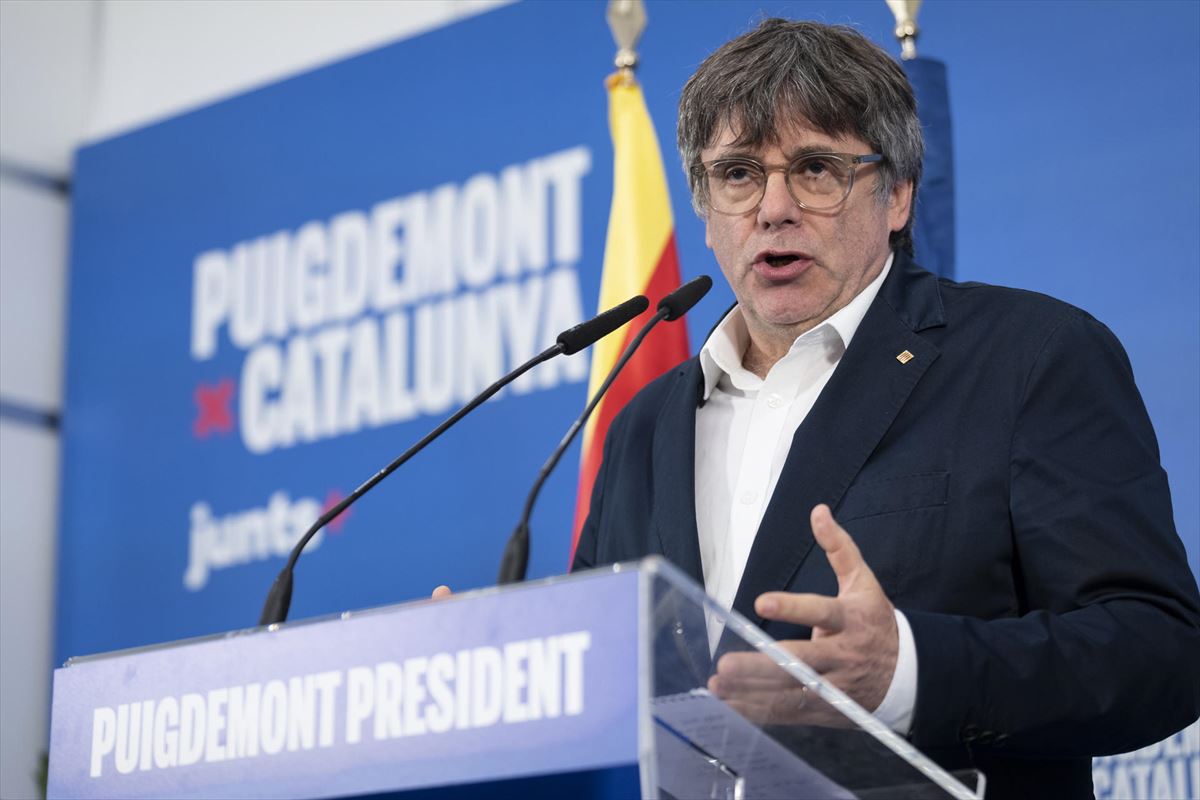The new President of Parliament, elected on June 10, will have the power to appoint the candidate for the investiture. Negotiations between the parties on the composition of Parliament’s Governing Council could be crucial for a future appointment.
The new Speaker of Parliament is elected June 10th It will be in their hands to appoint the candidate who will present himself first for an investiture, and it is expected that the decision will be between the Socialist candidate, Salvador Illa, or the Junts+ candidate, Carles Puigdemont.
To choose one of the two candidates, the new presidency must propose a candidate after meeting with all parliamentary groups to find out which candidate has the best chance of passing investiture.
The negotiations between the parties to… composition of the parliamentary council They could be crucial for a future investiture.
The proposed candidate will present his government program to the plenary meeting, requesting the confidence of the House, and after a debate the vote will be convened with the votes of the House. absolute majority of 68 deputies on the first ballot.
If the candidate is not approved, it can be voted on again two days later simple majority; and if it does not pass this second vote, a new proposal will be processed.
As they pass two months Since the first investiture vote and no candidate has yet been elected, Parliament will be automatically dissolved and the acting President of the Generalitat, Pere Aragonès, must immediately call new elections to be held in 47 days after the call, with an election campaign reduced to 8 days.
In the process towards the inauguration, the first step is the formation of the parliament and the presidency of the chamber, with a session to take place no later than June 10, twenty working days after the elections, according to the chamber’s regulations.
Thereafter, the President of the House will have ten working days to nominate a candidate for investiture, a period ending on 25 June.

The Presidency of Parliament is elected through a vote in which the deputies write their candidate on the ballot papers: in the first round the candidate who obtains the absolute majority – 68 votes – is elected and if there is no one, the second round repeats the process to choose one of the two most voted candidates.
In the second round, in case of equality between the candidates, the voting is repeated up to four times and, if the tie remains, the candidate of the parliamentary group with the most deputies.
Whoever is elected president of the chamber will hold a round of consultations with the groups to determine who will go first to the inauguration session to preside over the Generalitat.
After knowing the resultsIlla defended on Sunday that “it is up to the PSC to lead this new phase” and promised that once the parliamentary council is established, he will express his willingness to run for president of the Generalitat. Nuria Parlon (PSC) has set its sights on the ERC to ask it to facilitate Illa’s investiture, as she is the winner of the elections and understands that when the independence movement has lost its majority, “Catalonia has asked for change.”
The Junts+ candidate, Carlos Puigdemontassured this Monday that, if the ERC delegates are included, a possible government led by independents will have more support than the sum of PSC and Comuns Sumar, and has reiterated his intention to appear in an investiture debate to preside over the Generalitat.
For his part, the Acting President of the Generalitat of Catalonia, Pere Aragones, announced on Monday that he will not collect his deputy diploma and leave the political frontline after his party’s “poor results” in the elections. On the other hand, he stressed that the ERC will not facilitate an investiture of the PSC nor participate in “operations that require the agreement of the Junts and the PSC.”
Source: EITB
I am Ida Scott, a journalist and content author with a passion for uncovering the truth. I have been writing professionally for Today Times Live since 2020 and specialize in political news. My career began when I was just 17; I had already developed a knack for research and an eye for detail which made me stand out from my peers.



